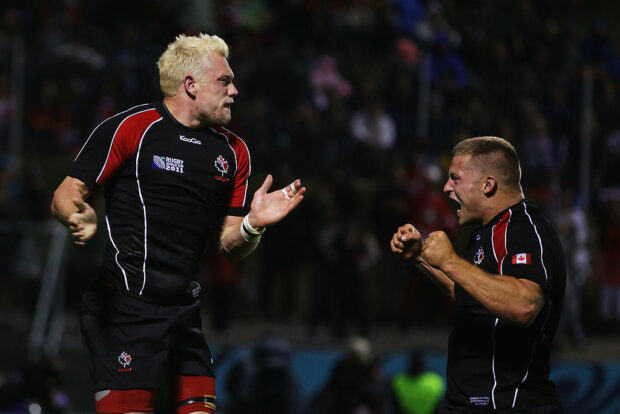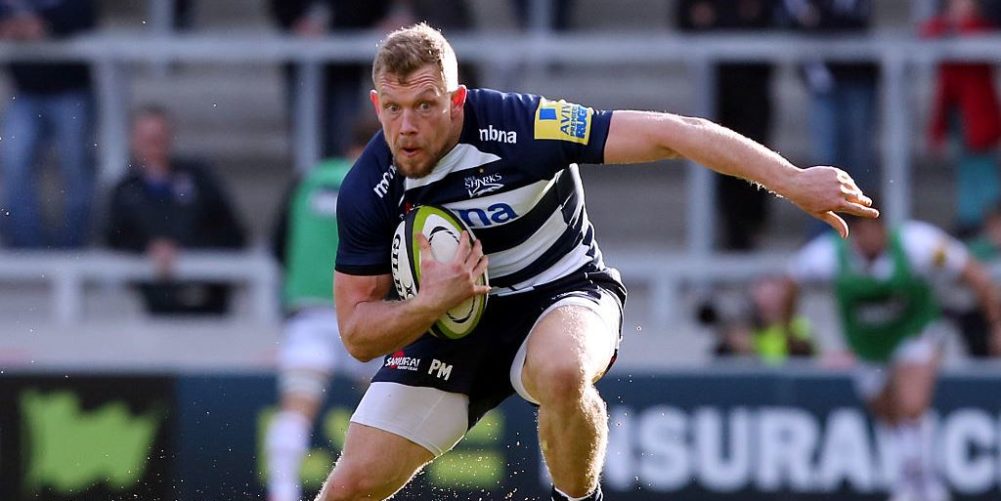THE start of my professional career didn’t exactly go as I’d have hoped, but when I look back on it as a whole, I definitely don’t have any regrets – even though I went down with three different clubs: Coventry, Esher and London Welsh. Maybe I was cursed!
Having taken up rugby at school, aged 14 (tennis was my main sport before then), I went on to play in the Canadian National Provincial Championship which, at the time, was about as far as you could go domestically beneath international rugby.
I knew I needed to step up a level to improve and to do that I needed to play overseas. My big chance with Coventry arrived in 2009 but the club soon went into administration. To have worked so hard to get the contract in the first place, and then have it taken away from me, was devastating at the time. I probably shed a tearing thinking this is the end of the road for me, already.
I knew I needed to stay in pro rugby to have a chance of remaining in the national team. I’d made my debut playing for Canada against Portugal the year before but then, in my second game, we got smoked by Ireland, 55-0. A realisation that I was way off being ready came with that defeat.
Fortunately it wasn’t the end of the road. Mike Schmid, a legend of Canadian rugby, was boss at Esher and he gave me the chance to carry on as a professional in the Championship. It was while I was there that I got to play alongside my brother Jamie for the first time at that level, which was a big deal for the both of us.
Following Esher’s relegation, a dream move to the Premiership with London Irish was on the cards, but Toby Booth left and the deal was off. Again, I was devastated.
As a Canadian it is so hard to get a contract because you’re a foreign player and there are so many good English players around. People weren’t exactly beating a path to my door; however, I did get the Premiership contract I craved when London Welsh won promotion.
I got lots of playing time at Welsh and really enjoyed my time there, even if we did ultimately go down.
We got off to a good start, but we didn’t have the deepest of squads and that took its toll, as well as some external things outside of our control, as the season wore on.
Lyn (Jones) was one of the best coaches I ever had. He is a crazy genius, and I loved playing for him. I was always a confidence player and thankfully the knock-backs at Coventry etc had helped build up some mental resilience in me. It’s a good job because I remember Lyn sat me down three weeks into me joining them and he said, “Phil, you’re not good enough to get in this team. You only started playing at 14 and you’re eight years behind”.
He was right. I wasn’t playing well. There was clearly rationale behind the madness as I got in the team a few weeks later and went on a hot streak of form.
I think the team camaraderie and the respect part of rugby is what really translated to my career. In rugby, you’re thrown into an environment with 30 or 40 guys that you have to work with and trust. You have to learn how to interact with all the guys, and different coaches, and be in these different environments. I was lucky to be involved in three very good squads in that respect: London Welsh, Sale Sharks and the 2011 Canada World Cup team.

After starting off well at Sale, I came back from a Canadian squad training camp and broke my hand in training. I’d just agreed a two-year deal, but I barely played after that.
Most people would think I’d be bitter about the experience, but the truth is anything but. Of course, I’d have loved to have played more, as that’s what we are paid to do, but the humility and closeness of that group will stay with me forever. It didn’t matter what anyone had accomplished in the game, we were all in it together. Sammy Tuitupou was not only a great player but is a great bloke. He’d have given me the shirt off his back. Without hesitation, he’d take me to the airport at 5 o’clock in the morning when I could have got a taxi for £5. I loved it that much there, I honestly thought I’d live in Manchester when it came to retire.
That decision was taken in 2016, the year after my second World Cup tournament. The one in New Zealand in 2011 was amazing, a completely different experience to 2015. That first squad was full of self-belief and we felt we could win no matter who the opposition were. We ran France close and managed a win against Tonga and got a draw against Japan. I scored in both. Against Tonga, it looked like we were going to be on the end of a 50-point beating but, somehow, we turned it around and, for me personally, to get the match-winning try was really special.
Whereas in New Zealand you felt as if the World Cup touched the whole nation – we’d regularly get 2,000 people watching up in little villages – you’d have struggled to know the 2015 tournament in England was on outside of matchdays. Car parks and hotels is pretty much all I seem to remember. I try to forget how we blew a 15-0 lead against Romania!
The spark had gone, and after one last hurrah in the newly-formed Americas Rugby Championship and Pro Rugby League, that was me done. I still feel as if I could play now but whether anyone would want me is another matter! Anyway, as the father of two gorgeous two newborn twins and with running a fitness business, The Lean Squad, I’ve got plenty to keep me busy.
– As told to Jon Newcombe






















